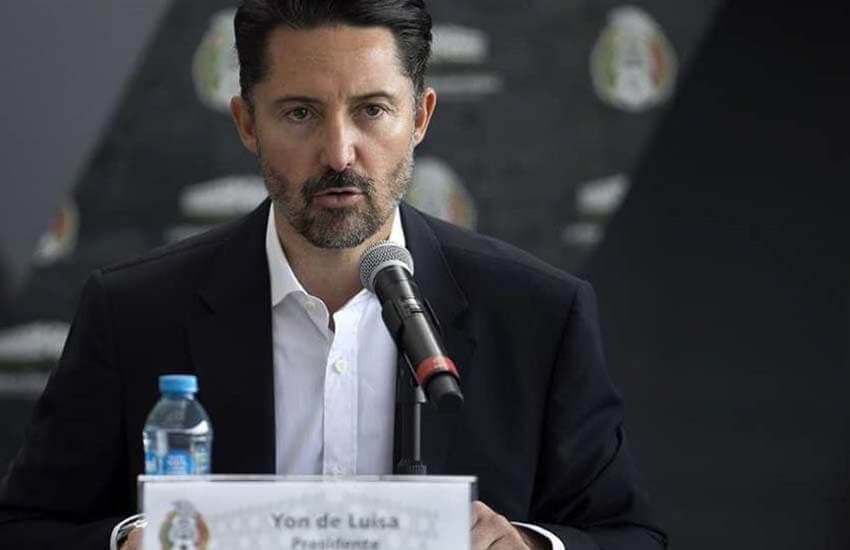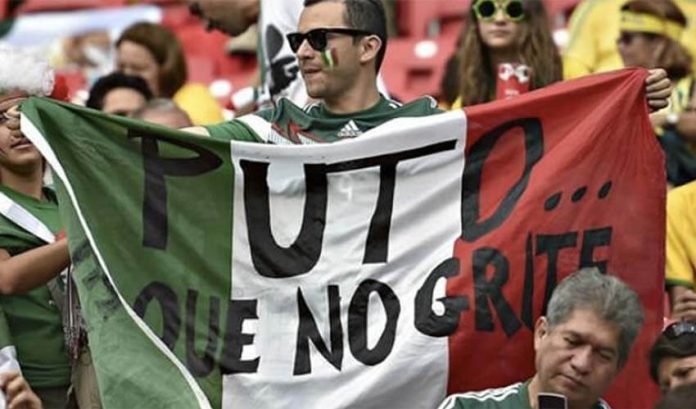The Mexican Soccer Federation (FMF) has introduced an unprecedented new restriction in its ongoing efforts to eradicate a popular homophobic chant.
The country’s soccer fans have repeatedly flouted a ban on crowd chants of “Eh, puto!” at matches. In the past, consequences for the chant included have suspended games and empty-stadium matches. Now, the FMF is taking enforcement a step farther: any spectator caught shouting the chant will be banned from national team games for five years.
To enact the new rules, ticket buyers will have to provide their personal information, then present a QR code and identification upon entering the stadium so if they had been expelled they can be identified and banned. Additionally, more security officials will be present in the stadiums to identify and expel fans who do not comply, FMF president Yon de Luisa said.
The Spanish word puto is a homophobic slur, often directed at opposing teams’ goalkeepers during goal kicks. It gained popularity at soccer games in the early 2000s but was banned as part of a worldwide campaign by the international governing body of soccer, FIFA, against homophobic and discriminatory fan behavior that started in 2014. Since that year, Mexico has been fined 17 times for the fans’ chant.
This year, the FMF faced a US $65,000 fine and two matches held without fans present after the chant was heard during Olympic qualifiers in June — though the penalty was reduced to just one empty stadium game on appeal. Another incident in October at the World Cup qualifiers earned the Mexican team an US $110,000 fine and the next two home games in empty stadiums.

But playing World Cup qualifiers without an audience was unacceptable to FMF leadership, and they managed to negotiate a deal: in exchange for implementing the strict new rules, FIFA has allowed them to invite 2,000 FMF employees and players’ families to Mexico’s next two qualifier home games.
“We can’t tolerate discriminatory behavior, we can’t play in empty stadiums, we can’t risk that the soccer authorities take away our points [in the World Cup qualifiers],” de Luisa said.
The upcoming games will take place at the Azteca Stadium in Mexico City. Mexico will play against Costa Rica on January 30 then face Panama on February 2. Mexico is currently in third place in the qualifiers with 14 points, following Canada with 16 points and the United States with 15.
“I hope that with this new system we will have eliminated the risk of incurring new sanctions,” de Luisa said. “We are convinced that people want to go to the stadiums to enjoy themselves, have a good time, and chant for their team.”
